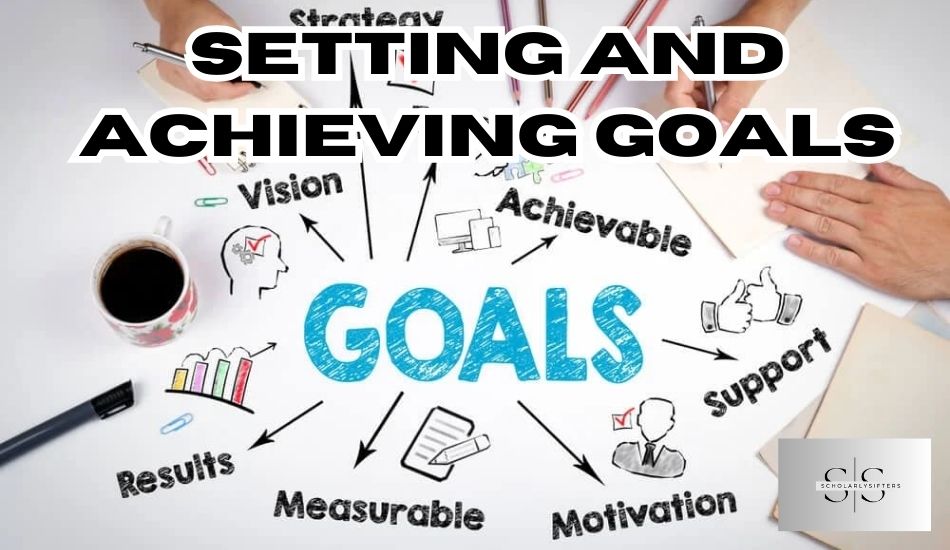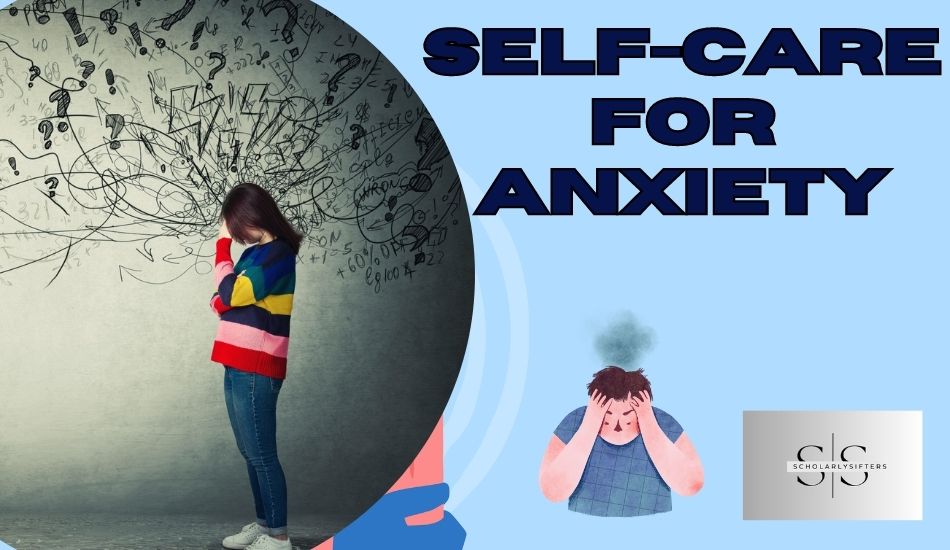No products in the cart.
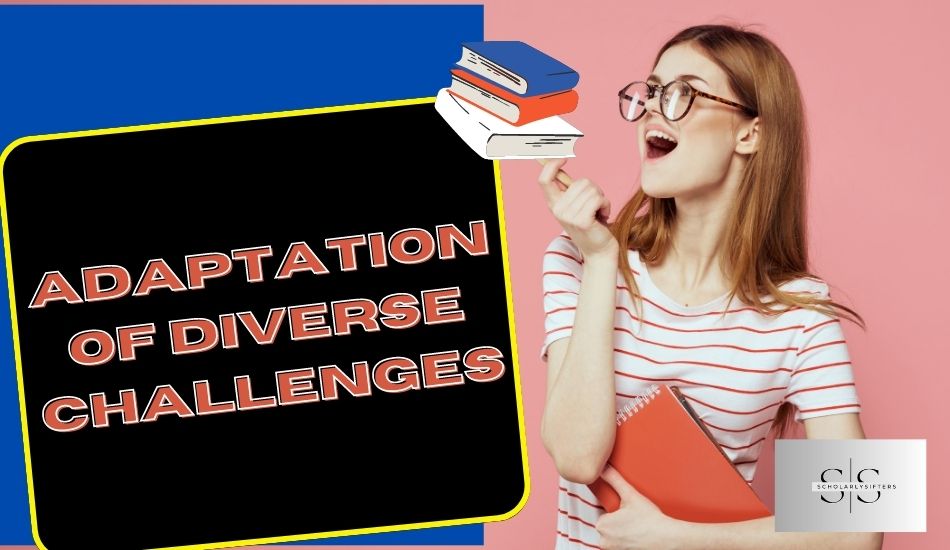
Adaptation of Diverse Challenges: Resilience and Grace in the Face of Life’s Storms
Introduction
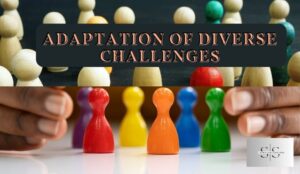
The adaptation of diverse challenges is essential for personal development, career success, and general well-being in a world that is continuously changing. The ability to adapt to changing conditions and a variety of problems is referred to as adaptation. Over the course of human history, it has become a skill that has helped us survive, advance, and flourish. The definition of adaptability and its critical role in many facets of our life are explored in this article. It also explores the importance of accepting change and the function that adaptation plays in helping us overcome the numerous obstacles that life throws our way.
Definition of Adaptation and Its Importance:
Adaptation is the process of modifying oneself or one’s behaviour to fit different circumstances, environments, or challenges. It involves the ability to recognize and respond effectively to new situations and demands. At its core, adaptation is about flexibility and resilience, allowing individuals to navigate through uncertainty and maintain a sense of balance.
The importance of adaptation lies in its role as a fundamental survival skill. Throughout history, humanity has encountered various environmental, social, and technological changes, and those who could adapt swiftly were the ones who thrived. In the modern world, the pace of change has only accelerated, making adaptation of diverse challenges even more crucial. Whether it is in personal relationships, career paths, or societal shifts, the capacity to adapt is essential for continued growth and success.
The Significance of Adaptation of Diverse Challenges:
Personal Growth and Development: Embracing change and adapting to diverse challenges often lead to personal growth. Stepping out of our comfort zones and confronting new situations allows us to learn more about ourselves, our capabilities, and our limits. Each experience, whether positive or negative, contributes to our emotional intelligence and resilience, enabling us to evolve into stronger individuals.
Professional Success: In the professional realm, adaptability is highly valued. Industries are constantly evolving, and companies seek employees who can readily adjust to new technologies, work processes, and market demands. Adaptable professionals are more likely to seize opportunities for career advancement and demonstrate leadership in times of uncertainty.
Navigating Relationships: Relationships, be it with family, friends, or romantic partners, are not immune to change. Adapting to the growth and development of these bonds is vital for maintaining healthy connections. It allows individuals to be more empathetic, understanding, and supportive, strengthening the foundation of trust and love.
Overcoming Challenges: Life presents us with an array of challenges – from personal setbacks to global crises. Adaptation empowers individuals to face these challenges head-on, find innovative solutions, and persevere through difficult times. It encourages a proactive approach rather than a defeatist attitude, enhancing the likelihood of success.
Identifying Various “Adaptation of Diverse Challenges”:
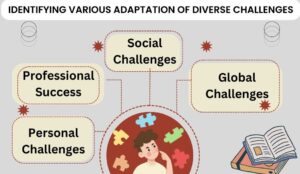
Personal Challenges: Personal challenges encompass internal struggles and obstacles individuals face in their lives. These may include coping with loss, dealing with mental health issues, managing stress, or striving for self-improvement.
Professional Challenges: In the realm of work, individuals encounter challenges related to their careers. These can range from meeting work targets, adapting to new technologies, navigating office politics, or finding a balance between work and personal life.
Social Challenges: Social challenges revolve around interactions with others and society as a whole. This may involve fitting into social groups, maintaining healthy relationships, combating social prejudices, or fostering inclusivity and diversity.
Global Challenges: Global challenges are broader issues that affect the entire world. These include climate change, economic instability, pandemics, and political conflicts, which often require collective efforts for resolution.
Recognizing the Impact of adaptation Diverse Challenges on Individuals and Society:
Challenges, whether personal, professional, social, or global, have significant impacts on individuals and society as a whole. The effects can be psychological, emotional, and even physical. Individuals may experience stress, anxiety, depression, or feelings of helplessness when confronting these challenges. On a societal level, challenges can lead to social unrest, economic instability, or humanitarian crises. Understanding these impacts underscores the urgency of developing effective coping mechanisms and adaptive strategies.
The Psychology of Adaptation
Theories of Adaptation of Diverse Challenges
General Adaptation Syndrome (GAS): Proposed by Hans Selye, GAS is a three-stage model that explains the body’s response to stress. The stages include alarm, resistance, and exhaustion. The theory highlights the physiological and psychological responses individuals undergo when faced with challenging situations.
Cognitive Adaptation Theory (CAT): CAT, developed by George Vaillant, emphasizes the cognitive processes involved in adapting to changes. It suggests that individuals employ cognitive strategies to cope with challenges, leading to long-term adaptation and growth.
The Theory of Evolutionary Psychology: This theory posits that adaptation is an innate human trait, shaped by natural selection over time. It suggests that the human mind and behaviour have evolved to adapt to various challenges to ensure survival and reproductive success.
Coping Mechanisms and Resilience:
Problem-Focused Coping: This coping mechanism involves addressing the root cause of a challenge and finding practical solutions. It includes proactive problem-solving and taking concrete actions to overcome difficulties.
Emotion-Focused Coping: Emotion-focused coping centers on managing emotions related to challenges. This may involve seeking support from others, expressing emotions, or finding ways to soothe oneself during stressful times.
Building Resilience to Overcome Challenges: Resilience is the ability to bounce back from adversity. It involves developing a positive mindset, fostering social support networks, and cultivating coping skills to withstand and learn from challenging experiences.
Flexibility and Open-Mindedness:
Being flexible and open-minded allows individuals to embrace change and respond positively to new situations. Adapting one’s perspectives and attitudes fosters a willingness to explore different approaches and solutions.
Embracing Change and Uncertainty:
Change is inevitable, and embracing it rather than resisting it helps individuals navigate through uncertainty with greater ease. Embracing change allows for continuous learning and personal development.
Developing a Growth Mindset:
A growth mindset involves seeing challenges as opportunities for learning and growth, rather than insurmountable obstacles. Individuals with a growth mindset are more likely to persevere and thrive amidst challenges.
Building a Support Network:
A strong support network provides emotional and practical assistance during difficult times. Connecting with friends, family, or support groups fosters a sense of belonging and encourages individuals to seek help when needed.
Seeking Help and Resources:
When faced with challenges, seeking professional help or utilizing available resources can provide valuable insights and guidance. Seeking assistance is a sign of strength, not weakness.
Learning from Failure and Mistakes:
Viewing failure as a stepping stone to success allows individuals to learn valuable lessons from their mistakes. Analysing failures with a growth-oriented perspective helps refine strategies for future challenges.
Cultivating Emotional Intelligence:
Emotional intelligence enables individuals to understand and manage their emotions effectively. Developing this skill enhances one’s ability to cope with stress, handle conflicts, and build meaningful relationships.
Time and Stress Management Techniques:
Effectively managing time and stress is crucial in facing challenges. Prioritizing tasks, setting boundaries, and engaging in stress-reducing activities contribute to better problem-solving and decision-making.
Specific Types of Adaption of Diverse Challenges
Adapting to Personal Challenges:
Relationship Issues: Foster open communication, practice active listening, and consider couples or family counselling to navigate relationship challenges.
Financial Problems: Create a budget, seek financial advice, and explore additional income streams to overcome financial difficulties.
Adapting to Professional Challenges:
Career Transitions: Assess skills, explore new opportunities, and seek guidance from career advisors to manage career transitions successfully.
Workplace Conflicts: Communicate assertively, practice empathy, and consider mediation to address and resolve workplace conflicts.
Workload and Time Pressure: Prioritize tasks, delegate responsibilities, and practice time management techniques to handle heavy workloads effectively.
Adapting to Social Challenges:
Cultural Differences and Diversity: Embrace cultural diversity, engage in cultural sensitivity training, and foster open dialogues to navigate social challenges related to cultural differences.
Social Anxiety and Communication: Practice social skills, challenge negative thoughts, and seek professional help for social anxiety to improve communication and social interactions.
Navigating Social Expectations: Set realistic expectations, assert personal boundaries, and prioritize self-expression to manage social pressures effectively.
Adapting to Global Challenges:
Environmental Crises: Advocate for sustainable practices, support environmental initiatives, and participate in community efforts to address environmental challenges.
Political and Economic Instabilities: Stay informed, engage in civic participation, and diversify investments to adapt to changing political and economic landscapes.
Pandemics and Health Emergencies: Follow health guidelines, prioritize well-being, and support community efforts to manage pandemics and health emergencies effectively.
Real-Life Examples of Individuals Overcoming Diverse Challenges”
Annu’s Journey to Recovery: Annu, a young professional, faced severe health issues that led to a sudden career halt. Despite the physical and emotional toll, Annu embraced change by seeking medical help, adopting a healthy lifestyle, and exploring new career avenues. Her resilience and determination enabled her to find a renewed purpose and embark on a fulfilling career in health advocacy.
Akash’s Triumph in the Face of Adversity: Akash, a successful entrepreneur, faced a major business setback during an economic crisis. Instead of giving up, Akash reevaluated his business model, sought expert advice, and diversified his offerings. Through persistence and innovation, Akash rebuilt his business, making it more resilient to future challenges.
Lessons Learned from Their Experiences:
Embrace Change and Persevere: Both Annu and Akash exhibited a willingness to embrace change and adapt to new circumstances. They did not let setbacks define them but used adversity as a catalyst for growth and progress.
Seek Support and Resources: Annu and Akash recognized the value of seeking help and resources during challenging times. Whether it was seeking medical advice or professional counsel, they utilized available support systems to their advantage.
Building Long-Term Adaptability
Continuous Learning and Skill Development:
Continuously learning new skills and knowledge enhances adaptability. Staying curious and open to learning allows individuals to stay relevant and flexible in an ever-evolving world.
Adaptation as a Mindset:
Adaptation of diverse challenges is not a one-time event but an ongoing mindset. Embracing change as a natural part of life fosters a proactive approach to challenges, leading to sustainable growth.
Cultivating Emotional and Mental Well-being:
Maintaining emotional and mental well-being is vital for effective adaptation. Practicing self-care, mindfulness, and emotional intelligence strengthens one’s ability to cope with challenges.
Finding Opportunities in Adversity:
Adversity often presents hidden opportunities for growth and innovation. By reframing challenges as opportunities, individuals can discover creative solutions and emerge stronger.

Conclusion
The examples of Annu and Akash illustrate the importance of adapting to diverse challenges. Their experiences demonstrate how resilience, perseverance, and a growth-oriented mindset are vital in overcoming obstacles.
Encouragement to Embrace Change and Growth:
Embracing change and growth is the path to personal development and success. It empowers individuals to thrive in an ever-changing world.
Final Thoughts on Becoming Adaptable in an Ever-Changing World:
Adaptation of diverse challenges, In an increasingly dynamic world, the ability to adapt is a superpower. By learning from real-life examples, fostering a growth-oriented mindset, and prioritizing emotional well-being, individuals can build long-term adaptability and seize opportunities for personal growth and achievement. Embrace change and let it be the driving force toward a brighter and more fulfilling future.




